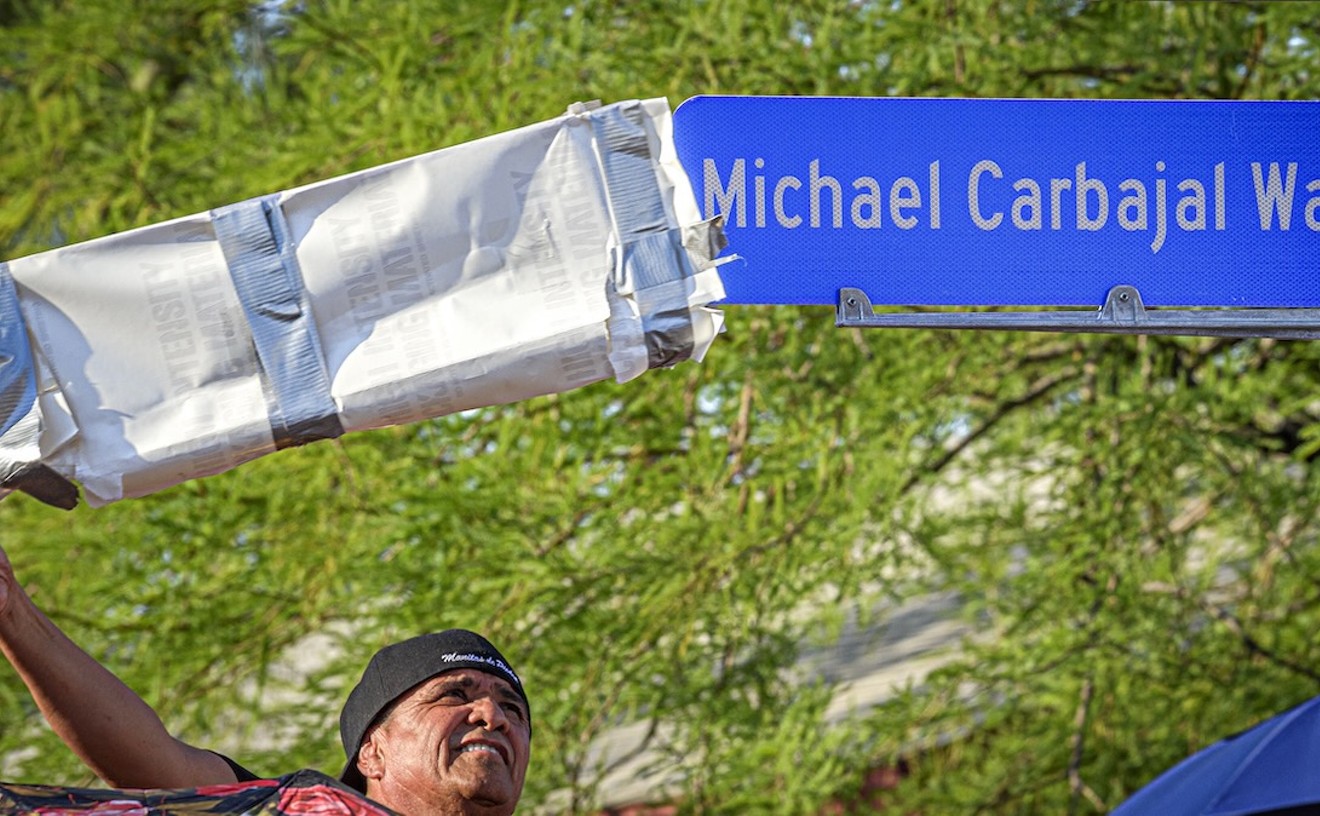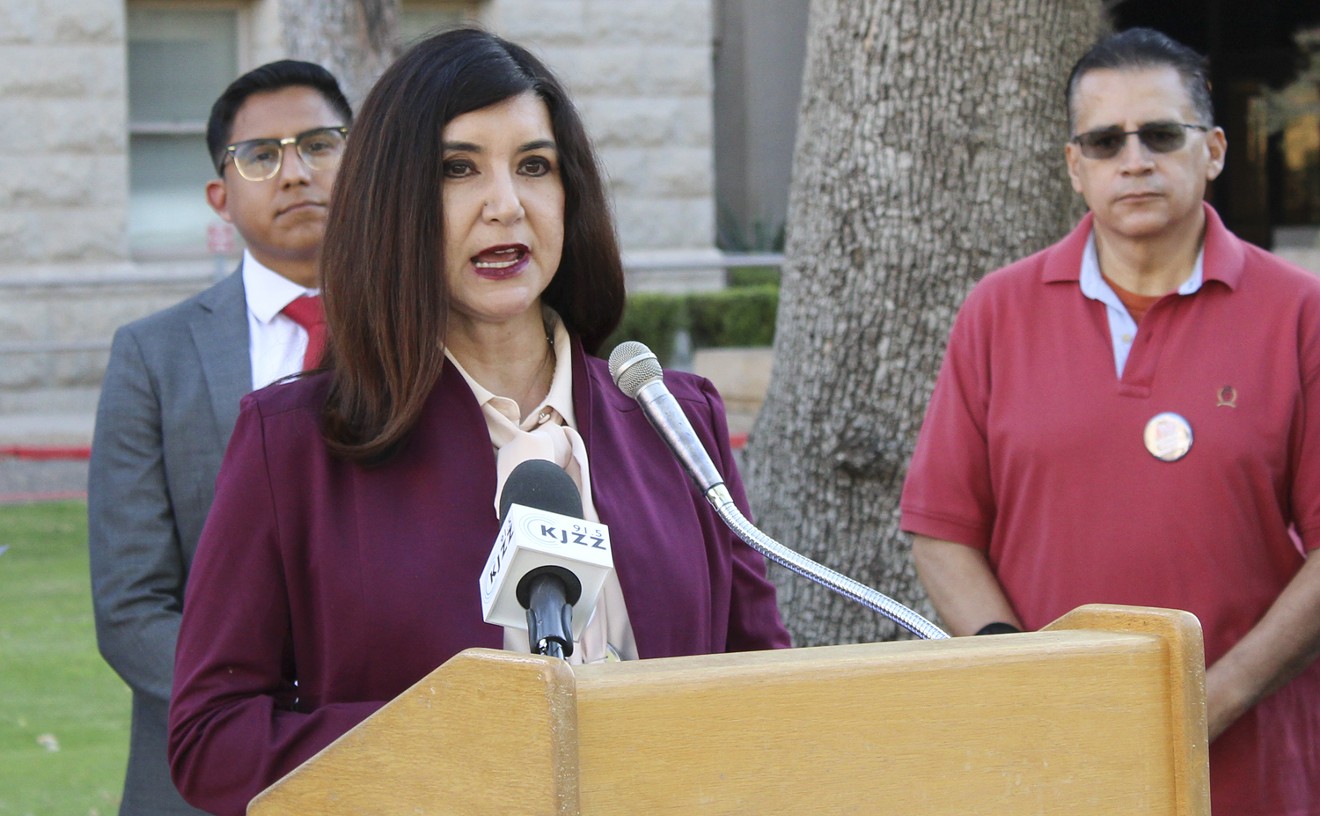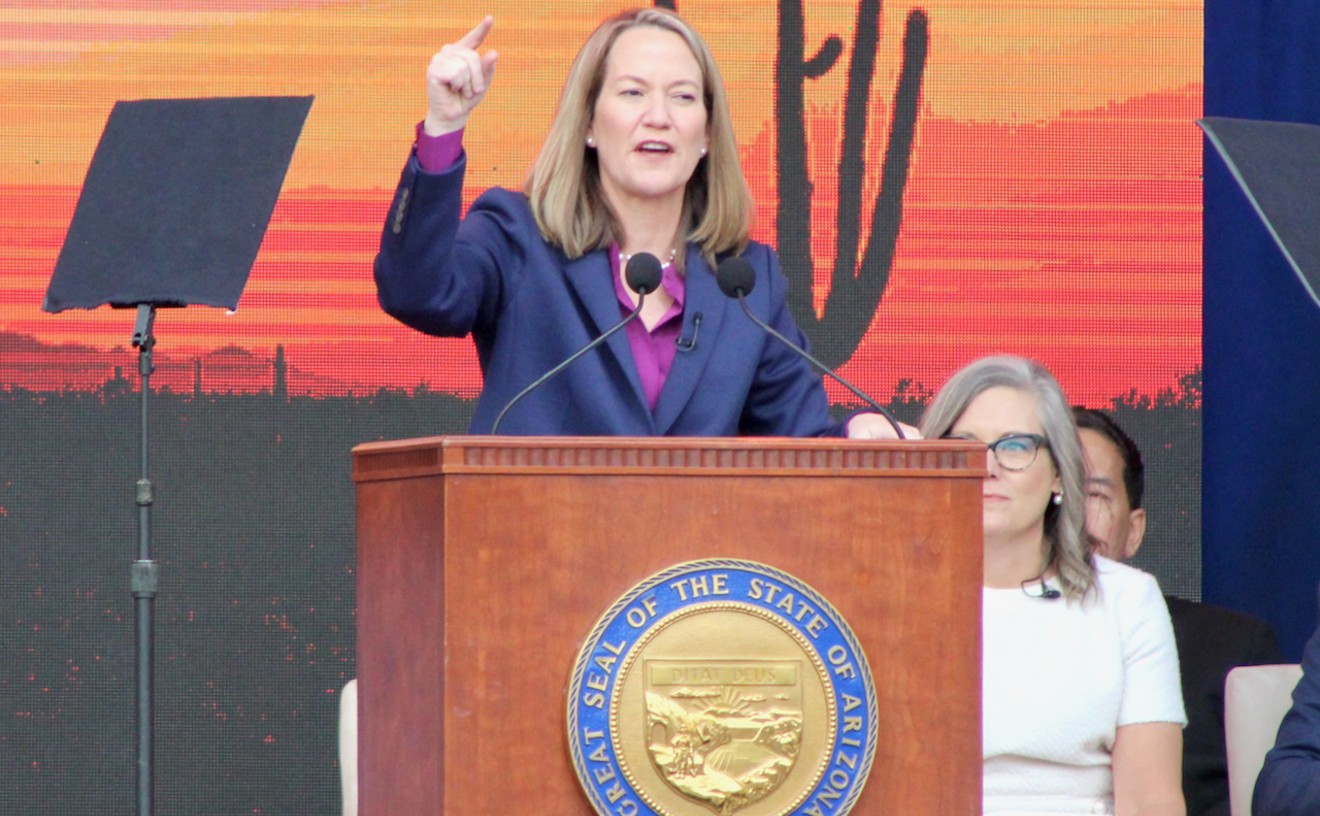Arizona babies are the least likely in the country to be vaccinated against measles, mumps, and rubella, according to the U.S. Centers for Disease Control and Prevention’s latest immunization survey.
About 84 percent of the state’s children between the ages of 19 and 35 months have received the MMR shot, the CDC estimates, compared to a national average of 91.5 percent.
Cara Christ, director of the Arizona Department of Health Services, however, took issue with the CDC’s numbers, arguing that the sample size was too small to accurately represent the population. According to state data, 95.8 percent of children between the ages of 18 and 60 months have received the MMR.
Christ said Arizona’s immunization rate increased slightly over the past year. It has, however, been on the decline since at least 2010, as more and more parents, fearing side effects, choose not to vaccinate healthy babies.
The percentage of kindergartners whose parents obtained a “personal belief” exemption from state-mandated vaccinations has increased from 3.2 percent in 2010 to 4.6 percent in 2015. Now, the CDC lists Arizona’s exemption rate as the seventh-highest in the country, following Idaho, Michigan, Oregon, Vermont, Colorado, and Wisconsin.
The state has seen the biggest increase in exemption rates among students at private and charter schools, Christ said. In some wealthy parts of metro Phoenix, exemption rates have reached as high as 17 percent.
Anti-vaccine fears were ignited by a 1998 study connecting the MMR to autism that has now been widely discredited. But since, a growing segment of parents interested in taking a more natural, chemical-free approach to medicine have latched on to the movement, arguing that illness should be a rite of passage and breastfeeding, healthy diet, and exercise can keep kids immune systems strong.
Christ said parents who “have more access to the Internet and are able to do research on their own” have higher rates of exemption.
“We need to do a better job of educating the public to counteract the spread of bad information,” she said. “We’re not used to seeing children die from measles or have life-changing effects from polio because we don’t see it in this country anymore, but that’s because of immunization. Vaccines are much safer than these diseases.”
Measles, which can be lethal, is one of the world’s most contagious viruses because it hangs in the air for hours after an infected person has left the room. To keep outbreaks from spreading, the CDC recommends between 92 percent and 95 percent of children receive the MMR. A high coverage rate gives the community what scientists call “herd immunity,” making it possible for children who are either too young or too ill to be vaccinated to hide among the crowd.
Earlier this year, after seven cases of measles popped up in Arizona, 1,000 people were quarantined for three weeks and the Maricopa County Health Department threatened to kick un-vaccinated children out of school.
“We would like to see vaccination rates at 100 percent,” Christ said. “It’s so important to keep the community healthy.”
[
{
"name": "Air - MediumRectangle - Inline Content - Mobile Display Size",
"component": "18478561",
"insertPoint": "2",
"requiredCountToDisplay": "2"
},{
"name": "Editor Picks",
"component": "16759093",
"insertPoint": "4",
"requiredCountToDisplay": "1"
},{
"name": "Inline Links",
"component": "17980324",
"insertPoint": "8th",
"startingPoint": 8,
"requiredCountToDisplay": "7",
"maxInsertions": 25
},{
"name": "Air - MediumRectangle - Combo - Inline Content",
"component": "16759092",
"insertPoint": "8th",
"startingPoint": 8,
"requiredCountToDisplay": "7",
"maxInsertions": 25
},{
"name": "Inline Links",
"component": "17980324",
"insertPoint": "8th",
"startingPoint": 12,
"requiredCountToDisplay": "11",
"maxInsertions": 24
},{
"name": "Air - Leaderboard Tower - Combo - Inline Content",
"component": "16759094",
"insertPoint": "8th",
"startingPoint": 12,
"requiredCountToDisplay": "11",
"maxInsertions": 24
}
]










